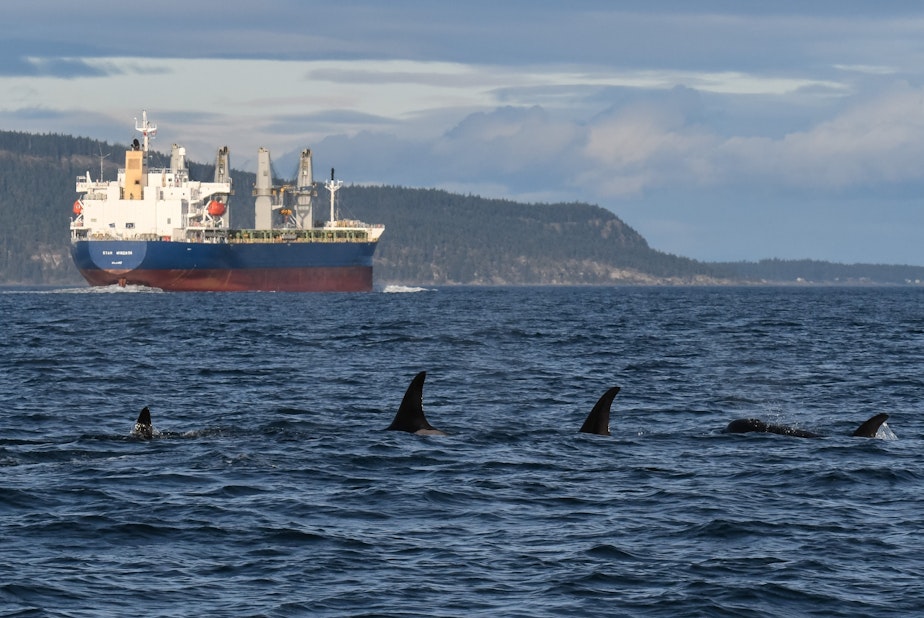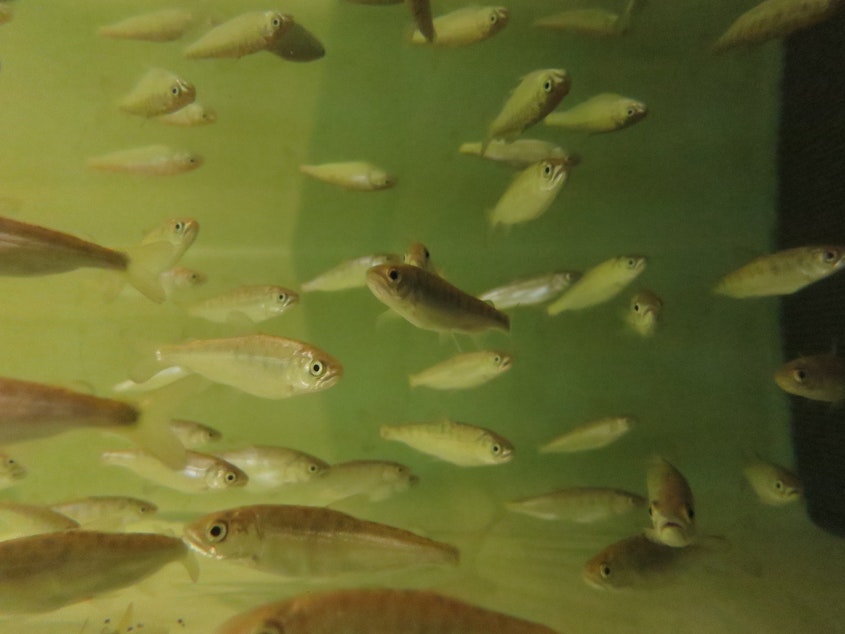'We are closer to losing these animals.' Efforts to save the orcas underway

Water pollution.
Boat traffic.
Dwindling salmon runs.
These are some of the bills making their way through the Washington state Legislature seek to lessen the biggest threats facing the killer whales.
Ship traffic interferes with the whales’ ability to find food and communicate.
“Every moment that goes by, we are closer to losing these animals,” said Deborah Giles, a killer whale research biologist. “They are the canary in the coal mine, they are the ones that are indicating the health of this ecosystem.”
The proposals are the result of a task force created by the governor last year to address the plight of the orcas.
“Nearly every policy recommendation from the orca task force is currently reflected in these bills,” said Mindy Roberts, a member of the task force and a director at the Washington Environmental Council advocacy group.
Sponsored
“Given that all four bills that were introduced this session are still alive and moving forward, I think things are looking better, but at this point we know we still have more work to do,” Roberts said.
There are currently just 75 southern resident orca whales, a 24 percent decline since 1995, according to Washington Environmental Council. Chinook salmon have decreased 60 percent over the past 35 years, according to the group.
“I’ve watched what I would say is just a great lessening in life in the Salish Sea; I’ve watched many salmon runs that we used to fish disappear,” said Brendan Flynn, an orca task force member and fisherman. He spoke at a press conference on Wednesday at the Seattle Aquarium in support of the policy proposals.
“It’s not the same place I remember as a child,” Flynn said.
The whales aren’t behaving like they used to, either.
The pods are fracturing and the whales aren't showing up to Puget Sound like before, Giles said.
“2018 was the first year in May when the whales never showed up,” Giles said. “They make these slight forays up the strait of Juan de Fuca towards San Juan Island, and they can tell that there’s no fish there, so they turn back around and go back and try and find food someplace else.”
The bills are:
- HB 1579, “Implementing recommendations of the southern resident killer whale task force related to increasing Chinook abundance,” which is expected to cost $1.1 million in 2019-2021.
- HB 1578, “Reducing threats to southern resident killer whales by improving the safety of oil transportation,” which is expected to cost $1.4 million in 2019-2021 and over $2 million every two years after that.
- SB 5135, “Preventing toxic pollution that affects public health or the environment,” which is expected to cost $1 million in 2019-2021.
- SB 5577, “Concerning the protection of southern resident orca whales from vessels,” which is expected to cost close to $1.6 million in 2019-2021.

The bills have passed important legislative hurdles in recent days, but face more before they can become law. In particular, lawmakers need to dedicate millions of dollars to fund them.




